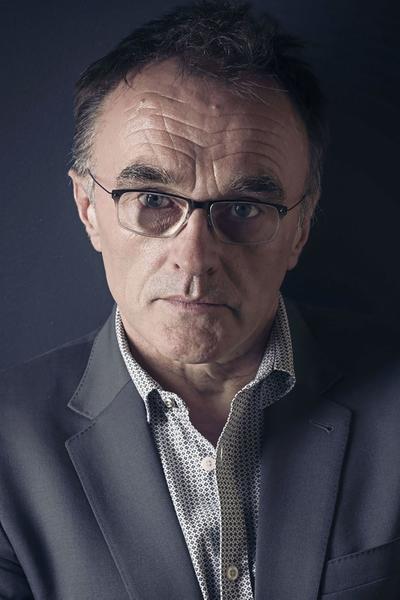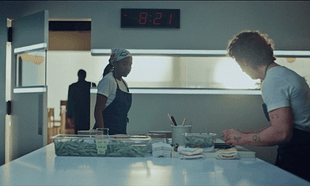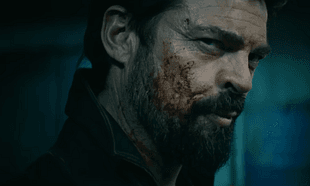The Sex Pistols have inspired countless bands over the years with the likes of The Clash, Joy Division, The Smiths, and Oasis citing them as an influence, and their story seemed tailor-made for the screen.
When adapting the incredible career of the Sex Pistols for the screen, going for the generic biopic angle simply was not going to cut it.
The project calls, nay demands, a music nut to direct and a young, hungry cast to do the story justice.
On those merits, 'Pistol' succeeds with flying colours.
Ever since Underworld's 'Born Slippy' was placed at the end of Trainspotting in 1996, Danny Boyle was somewhat of an authority on music in film, cementing himself as the transatlantic answer to Jonathan Demme.
Boyle has a prodigious sense of marrying music to film, and 'Pistol' is a crystallisation of what the director does best.
It is not merely enough to just depict how the Sex Pistols wrote their hits, the social and political context around it is absolutely crucial, and 'Pistol' hammers home just how big of a deal the band were when they exploded onto the scene in 1970's England.
Frequent Baz Luhrmann collaborator Craig Pearce serves as the main creative force on the show, acting as the creator and writer of all 6 episodes in the series, and the pairing of Pearce and Boyle is nothing short of explosive.
Pearce has an uncanny knack for writing multiple characters with differing ideologies and worldviews, with Thomas Brodie-Sangster and Sydney Chandler as Malcolm McClaren and Chrissie Hynde standing out.
Brodie-Sangster plays the flamboyant and idealistic Malcolm McClaren with such style you miss him when he isn't on screen, and Chandler's performance as Chrissie Hynde serves as the audience surrogate.
Chandler is an American in a culture that is alien to her, and we see the changing societal and music scenes from her perspective.
Chandler's performance is one of the high points of the series.
The chaos and hedonism of the revolution is seen from her viewpoint, showing viewers the human cost of the punk revolution.
The show excels in the quieter moments between Chandler and Toby Wallace's Steve Jones, showing that punk wasn't just hedonism, sex, drugs, and rock and roll.
The punk movement was borne out of frustrated young people wanting to challenge the status quo and they all shared a common love of music, and this shines through whenever Chandler is on screen.
In the case of 'Pistol', we saw that the revolution was televised, but it was planned in a dingy London apartment.
Brodie-Sangster, conversely, brings the razzmatazz you'd expect, and is a treat whenever he's on screen.
The 'Game Of Thrones' and 'Queens Gambit' star is a riot as the legendary Malcolm McClaren, and his outlandish plans to make the Sex Pistols "sexy young assassins" make perfect sense once you see how charismatic he is.
If the show ends up with any awards traction, it would be a shame if Brodie-Sangster and Chandler miss out.
We mention Brodie-Sangster and Chandler early on in the review, because the core cast of Toby Wallace, Anson Boon, Louis Partridge, and Jacob Slater are going to elevate to superstardom off the back of this series.
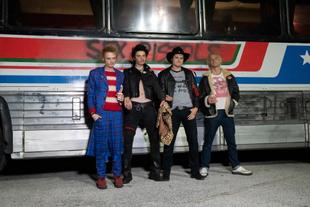
If the series has a protagonist, it's Steve Jones, and considering the show is based on his biography 'Lonely Boy: Tales from a Sex Pistol' the show smartly makes him the focus of attention.
The majority of the action is told from his perspective, and considering how Johnny Rotten has fought tooth and nail to disparage the show at every opportunity, some band members were going to come off better than others.
Toby Wallace plays Steve Jones with a level of vulnerability tinged with an edginess, and Wallace is able to switch between the temperaments at will.
Wallace has masterful control over what version of Steve Jones wants to present to the world.
The series tells the story from his perspective, and seeing as the show is based on his biography, he is perhaps best placed to tell his side of the story.
When Anson Boon comes on screen, the show goes from great to excellent, and his turn as Johnny Rotten is the kind of performance that launches a career.
Capturing Johnny Rotten's energy is a tall order for any actor, but Boon makes it look easy.
Boon is a volcanic, livewire performance, that is sure to cement him on the a-list sooner rather than later.
Boyle has always had a talent for picking out young actors and making them stars, and Boon gives an Ewan McGregor in 'Trainspotting' level performance that will be fondly remembered after he becomes a movie star.
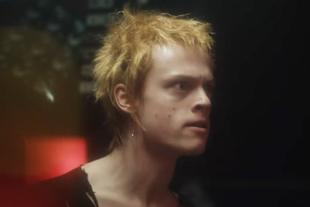
The final two episodes of the show mainly focus on Louis Partridge's Sid Vicious, and the show makes it abundantly clear that Vicious was not the poster boy for a lost generation.
Gary Oldman's performance as Vicious in 1986's 'Sid and Nancy' did a lot to rehabilitate his public image as a misunderstood lost soul, but 'Pistol' spells it out - Sid Vicious was swallowed up by the system and it consumed him.
Vicious was just that, and Partridge pulls off a very tricky role of making him appear sympathetic in one scene and a complete monster the next.
If the show has one major complaint, it nearly falls into the 'Walk Hard' trap of telling the audience that that is a major historical event and you should pay attention, and while the show largely avoids that, the treatment of Sid and Nancy feels like it comes from the cliched version of the show.
The storyline doesn't appear until episode 5 of 6, and is established, played out and resolved within the 2 episodes.
The 6-episode length is a tight rope for the show to walk - making this story a season of television instead of a movie allows us to dig into the nuances and lets the actors find their performances - but an extra 2 episodes would have really fleshed out perhaps the most pivotal storyline in the Sex Pistols story.
Boyle's forays into television (2018's 'Trust' was an underrated gem in the Oscar winner's filmography) reveals that the director is at his best when he's ratcheting up the tension between characters and unleashing it when the audience least suspects it.
The director has long had a relationship with music, and in telling the story of a pivotal band of his youth, Boyle understands why the Sex Pistols became such a big deal.
The show makes liberal usage of news footage and needle drops from the time, and it's all in support of the story.
Where Boyle's directorial chops shine brightest is the concert scenes, which capture the visceral, raw energy of a punk show.
After watching 'Pistol', you will get a hankering to head down to Whelan's on a Saturday night.
Recent music biopics fall into the 'Walk Hard' trap of spelling out for the audience that you're seeing a pivotal moment in their career and name drop the appropriate celebrity in the scene.
There are one or two moments that feel like something out of 'Walk Hard' such as how Sid Vicious got his name, but by and large, Boyle and Pearce capture just how vital and urgent the Sex Pistols were to a generation that had no future.
'Pistol' is unapologetic in its depiction of violence, swearing and drug usage, but it is a perfect argument for the refuge streaming services offer auteurs.
The show would surely be slapped down by watchdogs if it were to air on normal television, so giving the Sex Pistols story a chance to operate at a high budget on a streaming service was the best thing that could have happened to it.
'Pistol' is raw, explosive, and without question, one of the best shows of the year.


